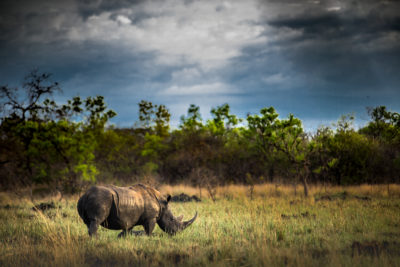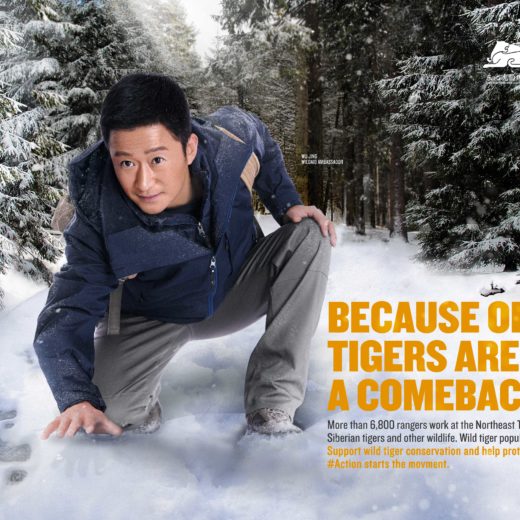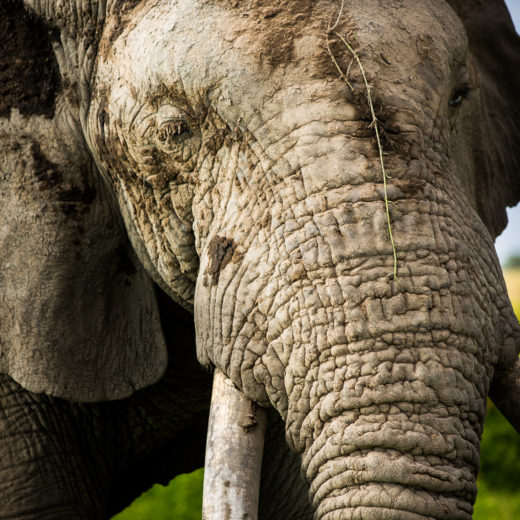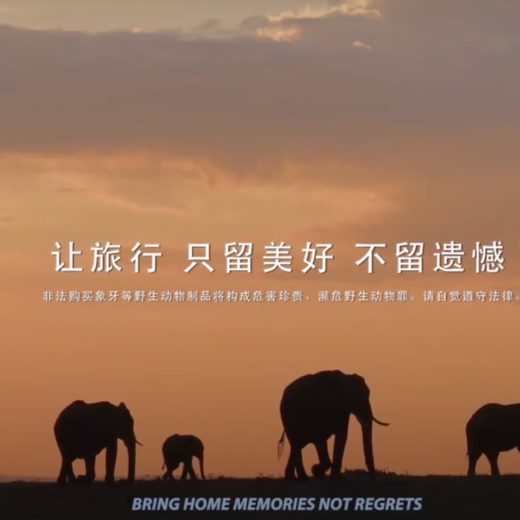
In a reversal from an October decision to allow trade in rhino and tiger products for limited medical use, China has temporarily restored its 1993 ban. While Chinese officials gave no reason for the change in decision, they have assured the public that the original ban will remain in place for the time being.
“Thankfully, China has realized that sanctioning trade could increase demand for rhino and tiger parts and have devastating consequences for wild populations,” said WildAid CEO Peter Knights. “WildAid is encouraged by China’s willingness to uphold it’s 1993 ban so that it can continue its global leadership role in wildlife conservation.”
Previously, the Chinese government surprised conservationists when it announced in an October 29th statement that it would allow the limited use of rhino horn and tiger bone for medical research by certified hospitals. These parts were only to be allowed from rhinos and tigers raised in captivity, excluding zoo animals. This raised concerns that the new policy would open the door to increased farming while also providing cover for poached rhino horns. Roughly 150 companies have permission to sell tiger parts from animals that die in captivity while domestic rhino ranching is much less common.
Rhinos and tigers are both endangered in the wild and China banned trade in tiger bone and rhino horn in 1993. However, tiger bone from Chinese commercial tiger farms, as well as rhino horn from illegally poached rhinos in South Africa, often end up on the black market in tonics and medicines.
In response to the October directive, the Chinese public expressed concern and dismay in thousands of social media posts and comments, such as “Why do I see news of putting rhinos and tigers back in TCM and feel like we wasted all the efforts on protecting them?” and “I’m a TCM practitioner and just like you I’m baffled by this. There are so many alternatives to all these ingredients. Why do we have to kill endangered animals for it?” WildAid’s slogan, ‘when the buying stops, the killing can too,’ was referenced frequently in articles and comments.
Speaking earlier this week with Xinhua news agency, State Council Spokesman Ding Xuedong said the limited allowance of rhino and tiger parts for medical purposes had been “postponed after study.”
“(The) Chinese government has not changed its stance on wildlife protection and will not ease the crackdown on illegal trafficking and trade of rhinos, tigers and their byproducts and other criminal activities,” Ding said. “I would like to reiterate that the Chinese government is willing to work with the international community to jointly strive for protecting wildlife and building our harmonious and beautiful planet.”
WildAid will use this respite to respectfully urge the Chinese government to uphold the permanent ban so as not to jeopardize important gains already made. Since the implementation of the original ban, rhino horn prices have fallen by two-thirds, and poaching levels are declining in South Africa.
Rhino horn, which is made of the same protein found in human hair and fingernails, is promoted as a purported cancer cure, general health tonic, and as a hangover cure in Vietnam, while crushed tiger bone has been said to treat a variety of ailments, including rheumatism and back pain with no scientific evidence to back up claims.
In 2013, WildAid and the African Wildlife Foundation launched a joint campaign to reduce demand for rhino horn in China and Vietnam. The campaign has worked to raise awareness of the rhino poaching crisis, increase enforcement efforts, and measurably reduce demand for rhino horn. Dozens of popular and well-respected celebrities such as former NBA star Yao Ming, actor and martial arts icon Jackie Chan, actresses Li Bingbing and Maggie Q, singer Jay Chou, entrepreneur Sir Richard Branson, Prince William and soccer star David Beckham, have helped the effort in the form of high-impact, culturally sensitive messages, which have alerted several hundred million people to the plight of the rhino.
Stay in touch and get the latest WildAid updates.
SIGN UP


